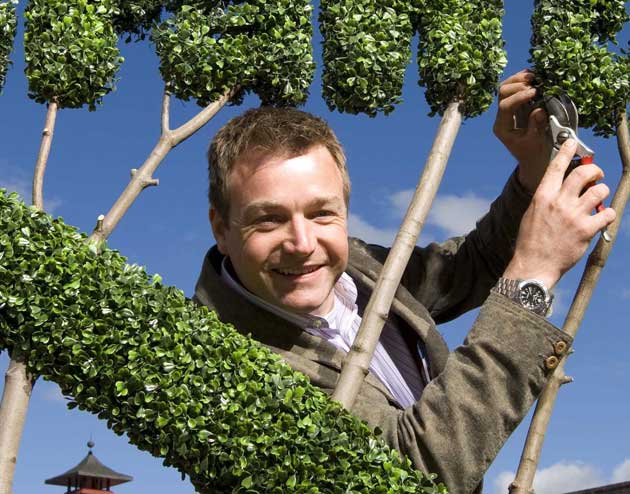Passed/Failed: An education in the life of the television gardener Chris Beardshaw
'At four, I wanted to work with plants'

Your support helps us to tell the story
From reproductive rights to climate change to Big Tech, The Independent is on the ground when the story is developing. Whether it's investigating the financials of Elon Musk's pro-Trump PAC or producing our latest documentary, 'The A Word', which shines a light on the American women fighting for reproductive rights, we know how important it is to parse out the facts from the messaging.
At such a critical moment in US history, we need reporters on the ground. Your donation allows us to keep sending journalists to speak to both sides of the story.
The Independent is trusted by Americans across the entire political spectrum. And unlike many other quality news outlets, we choose not to lock Americans out of our reporting and analysis with paywalls. We believe quality journalism should be available to everyone, paid for by those who can afford it.
Your support makes all the difference.Chris Beardshaw, 40, presents 'Wild About Your Garden' on BBC1. His previous programmes include 'Gardeners' World', 'The Flying Gardener' and 'Great Garden Detectives'. He is also involved with the Government's new Diploma, a qualification for 14- to 19-year-olds (www.direct.gov.uk/ diplomas), and lectures at the Royal Botanic Garden Edinburgh
My most vivid memory of Pitmaston Primary School, in an old manor house on the outskirts of Worcester, was of the three yew trees in the playground. Their boughs touched the ground and when you went under them you were in this almost cathedral-like enclosure. Only later did I discover that some of my favourite cultivars of the apple were bred in the grounds of that manor house in the early 1800s, and we still cultivate them now.
I was only there for 12 months as my parents decided to renovate an old house in the middle of nowhere, and I went to the small Church of England primary school in Broadwas village. It probably had no more than 35 children, and. there were not enough of us boys to make a full football team without enrolling some of the girls. I was the captain.
It was a fabulous school, at the heart of the community. I never remember not wanting to be there. There were three classes and a nursery, and teaching was very much tailored to each individual child. Yet I'd have been a dead loss if all I'd done had been in the classroom, as I spent much of my time looking out of the window at the river valley and the cows on the flood plain. Most of my learning took place outside school.
I had known that I wanted to spend my life working with plants since my fourth birthday, when I was given a plant propagator, a packet of seeds and a watering can, and by the time I left primary school, I was working every weekend at a plant nursery.
At 11, I had a 10-mile bus ride back into Worcester to the Bishop Perowne School. (Apparently there were two bishops, but whoever carved the name in stone accidentally dropped the final "s".) The school was fabulous and I felt completely at home. There was a maximum of 100 in each of the five years, and the ethos was of individual learning and caring: you felt a sense of belonging and pride.
I knew I wanted to study at Pershore [part of Warwickshire College] for the National Diploma in Horticulture. By the time I was 12 or 13, I had visited the college and spoken to the principal about what subjects I needed to get at O-level. I got eight O-levels, which included biology, geology and geography, and got the highest grades in my school that year. I had worked out my courses at college, but the [external] careers teacher tried to persuade me to join the Navy: "You don't want to take up farming!"
I did a year's work experience at a plant nursery, then went to Pershore College. I was the youngest student ever, and had to sign a letter promising that I wouldn't go into the college bar until I was 18! The first and third years were academic, and for my placement in the second year, I went to the nursery at which I'd worked previously. I was 19 when I left, and I then worked for 15 months at one of the country's largest nurseries.
I went on to study landscape architecture – BA Hons and a postgraduate diploma – at Cheltenham College (which is now the University of Gloucestershire). The three years of the BA course were fantastic, just the most enlightening experience, primarily because of two lecturers: Alan Steves-Booker, an architect-turned-artist, and James Wilson, a wonderful plantsman with a passion for all things horticultural. I got a 2.1.
I am now part of an initiative that has just launched a website that offers a career service to anyone thinking of studying horticulture (www.growcareers.info). At school, there was no perception of what horticulture was. I remember that when I told one of the teachers that I wanted to work in a nursery, he asked, "Why do you want to work with young children?".
Join our commenting forum
Join thought-provoking conversations, follow other Independent readers and see their replies
Comments